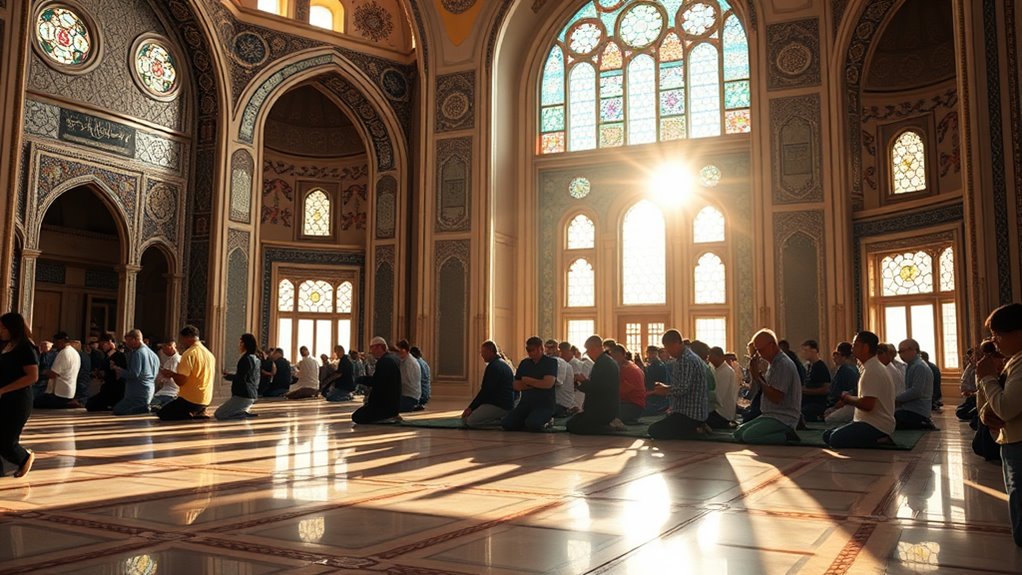In John 7, we find an extraordinary moment during the Festival of Sukkot, one of Israel’s most joyous annual gatherings.
“On the last day of the feast, Jesus stood and cried out, saying, ‘If anyone thirsts, let him come to Me and drink.’” — John 7:37
This was not just a routine event—it was a climactic moment. The last day of Sukkot held symbolic weight in the Jewish calendar. Each day, the priests carried out the water-pouring ceremony, drawing water from the Pool of Siloam and pouring it at the altar. This act was both a ritual of divine dependence and a symbol of the presence of God.
In the midst of this joyful scene, Jesus stood up and cried out—a gesture that was both unusual in His ministry and meant to highlight urgency.
He wasn’t merely speaking of physical water, but rather offering a heavenly refreshment—something eternal.
A Call to the Thirsty
“If anyone thirsts, let him come to Me and drink.” – John 7:37
This invitation was transformative. Yeshua didn’t specify race, status, or background. He spoke to anyone—to the poor, to the curious. His words were directed at those who knew their own emptiness.
From a Seventh-day Adventist perspective, this scene mirrors the call of Isaiah 55:1:
“Ho! Everyone who thirsts, come to the waters…”
Just as ancient Israel looked back on God’s provision in the wilderness, Yeshua pointed forward to living water—symbolizing the Holy Spirit, who would be poured out on those who believe.
The water ceremony at Sukkot was a reminder of how God gave water from the rock in the wilderness. Now, Jesus identifies Himself as the true Source, the Rock of Ages, from whom eternal life flows.
Prophetic Layers of the Feast
Yeshua’s statement in John 7:38-39 continues:
“He who believes in Me, as the Scripture has said, out of his heart will flow rivers of living water.”
“But this He spoke concerning the Spirit, whom those believing in Him would receive…”
This was more than an invitation—it was a revelation. The Feast of Tabernacles, while commemorating God’s presence in the wilderness, was ultimately pointing to the outpouring of the Holy Spirit.
For Adventists, this aligns with the biblical concepts of the early rain and latter rain. The early rain came at Pentecost. The latter rain, still to come, will fall just before the final harvest—representing the great outpouring of the Spirit in the last days (Joel 2:23; James 5:7-8).
This feast is a symbolic preview of what God wants to do in the lives of His people at the end of time—to fill them with power for the final message and mission.
The Final Day of the Feast: A Sacred Moment
John 7:37 begins with a climactic moment:
“On the last day, that great day of the feast, Jesus stood and cried out, saying, ‘If anyone thirsts, let him come to Me and drink.’”
This was no ordinary day. The last day of Sukkot was a time of great celebration. Each day of the feast, a special water-pouring ceremony took place, where a priest would draw water from the Pool of Siloam and pour it out at the base of the altar in the temple. This was a prayer for physical blessing and a reminder of the Holy Spirit.
In this emotional moment, Yeshua stands up and cries out—a rare action in His ministry. This act was intentional, drawing attention to a deeper meaning. He wasn’t just speaking about physical water. He was offering something much greater: spiritual life.
“If Anyone Thirsts…” – Yeshua’s Open Invitation
Yeshua’s words were both direct and universal:
“If anyone thirsts, let him come to Me and drink.” – John 7:37
This was an invitation to all—rich or poor, Jew or Gentile, educated or uneducated. He didn’t call the righteous or the proud, but those who recognized their thirst—those who longed for truth, peace, forgiveness, and spiritual life.
From a Seventh-day Adventist perspective, this echoes Isaiah’s prophecy:
“Ho! Everyone who thirsts, come to the waters…” – Isaiah 55:1
Just as the water ceremony symbolized God’s provision in the wilderness, Yeshua was now offering living water—the indwelling Holy Spirit, who refreshes and transforms the soul.
Rivers of Living Water: The Promise of the Spirit
Yeshua continues in John 7:38-39:
“He who believes in Me, as the Scripture has said, out of his heart will flow rivers of living water.”
“But this He spoke concerning the Spirit, whom those believing in Him would receive…”
The Feast of Tabernacles had always pointed to God’s presence with His people. In the wilderness, He was there in the pillar of cloud and fire. Now, Yeshua promises the Holy Spirit as the ultimate fulfillment—a personal, living presence inside every believer.
For Adventists, this speaks to the early rain and latter rain imagery. The early rain came at Pentecost. The latter rain—yet to be poured out in full—is what God’s people await before the final harvest (Joel 2:23, James 5:7-8). Sukkot looks forward to that final outpouring before the return of Christ.
The Reaction of the People
After Jesus’ declaration, the people were stirred. Some said:
“This is the Prophet.”
Others said, “This is the Christ.” – John 7:40-41
But others doubted Him because He came from Galilee, not realizing He was born in Bethlehem, the city of David. There was confusion because people were focused on appearances and expectations, not prophetic truth.
This is a common theme in Yeshua’s ministry—and a warning for all generations. If we judge by surface-level tradition, we may miss the Messiah standing right before us.
The Message for Today
For SDA Christians, the message of Yeshua at the Feast of Tabernacles is a call to:
Recognize our spiritual thirst
Come to Jesus for living water
Receive the Holy Spirit fully
Prepare for the final outpouring in these last days
As we near the Second Coming, we too must gather, rejoice, and look forward to that time when God will again dwell with His people—not in booths, but in eternity.
Walking in Tabernacles Truth
The message of Jesus at the Festival of Booths is not just a historical event—it holds prophetic truth for us in this generation.
As Adventist believers, we understand that the biblical feasts are not simply ritual practices, but divine appointments pointing to the mission of Christ and His work for humanity.
The Feast of Tabernacles, in particular, represents the great spiritual harvest—a time when God will reunite with His people before the appearing of Christ.
A Glimpse of Glory
The Feast of Tabernacles also reminds us of a future reality—when the New Jerusalem descends and God will dwell among His people once again (Revelation 21:3). No longer in tents or temporary booths, but in a restored Eden where death is defeated.
This moment will be the fulfillment of all the feasts, all prophecies, and all hopes of God’s faithful throughout the ages.
Just as ancient Israel looked back on God’s provision in the wilderness, we now look forward to that eternal tabernacle, where God’s presence will be our joy forever.
Preparing Our Hearts
Jesus’ invitation still echoes through time:
“If anyone thirsts, let him come to Me and drink.”
He offers eternal refreshment to all who are ready to come. The only requirement is thirst—a heart that knows it needs Him.
For the end-time remnant, the message is clear:
Do not rely on traditions alone.
Seek the living presence of God through the Spirit of truth.
Prepare for the latter rain, the Spirit’s final work before the return of Christ.
The Harvest is Near
The imagery of the harvest is woven throughout Tabernacles. For those awaiting Christ’s return, it speaks to the final call—the three angels’ messages going to every nation, tribe, tongue, and people (Revelation 14:6).
Soon, the spiritual harvest will be complete. Those who have responded to the voice of Jesus, who have drunk of His living water, will be gathered into His eternal kingdom.
Let us not ignore the moment. Let us respond, rejoice, and get ready.
The Feast of Tabernacles is not just a memory—it is a glimpse of eternity.
May we all be found watching when the true Tabernacle appears in the skies, and God dwells among us forever.



